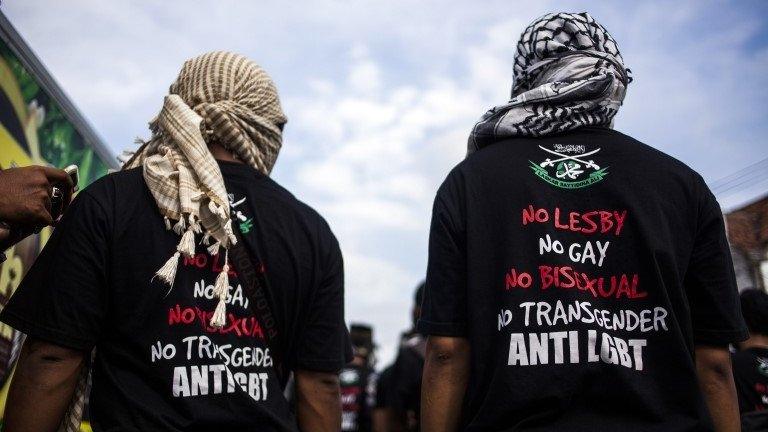The transgender Indonesian Muslims trying to secure their future
- Published
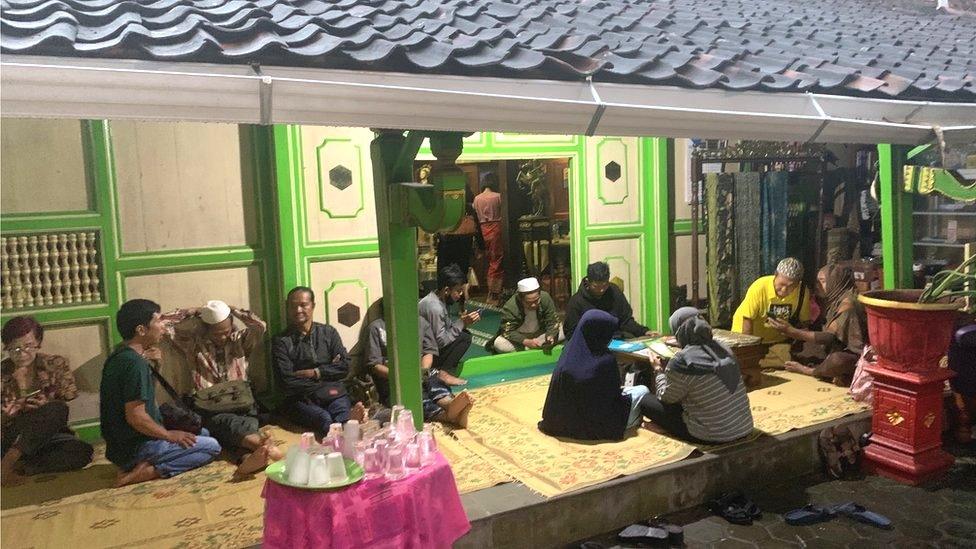
The Islamic Centre of Al-Fatah in Yogyakarta, Indonesia has around 63 members, all of whom are transgender
The future of Indonesia's only Islamic community centre for transgender women is in jeopardy after its leader, Shinta Ratri, died in February - and the government says it cannot support it.
There are 63 trans women who regularly attend the Al-Fatah community centre, which provides a space for them to pray, learn the Quran, learn skills or simply socialise without being judged for who they are.
Rini Kaleng is one of them.
After waking up each morning, she puts on makeup and her favourite black wig before grabbing a handbag and heading onto the streets of the historic city of Yogyakarta to busk.
She walks for miles and miles, playing music from her Bluetooth speaker and singing to earn a living. But on Sundays, her journey ends with an afternoon visit to Al-Fatah to study the Quran.
"It's a safe place where we can pray," says Ms Rini, who has been going since 2014.
As a child, Ms Rini had always felt more comfortable playing with girls instead of boys. She would dress up as a girl, play with kitchen toys and pretend to be a bride with her friends.
After coming out as a trans woman, her parents and nine older siblings all accepted her identity. Now, she is recognised by people on the street who see her singing and dancing.
"You could say I'm a celebrity here," she laughs.
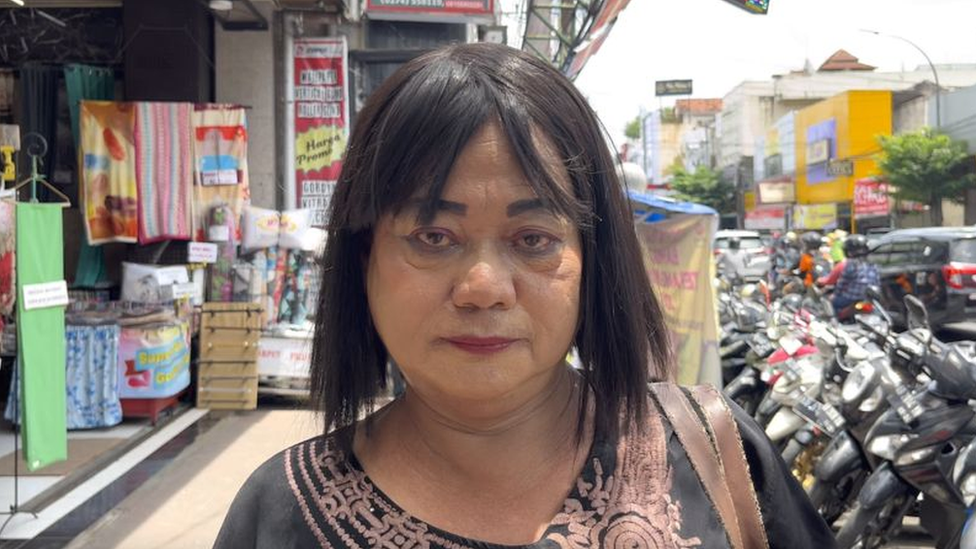
Rini Kaleng, a member of the centre, is well-known on the streets of Yogyakarta
Ms Rini first heard of the Islamic centre for trans women from a friend who also wanted to study religion.
She discovered a whole community of women like her who shared the same passion.
At mosques, she would often get odd looks when she went to pray. "They did not necessarily accept us. So I went to Shinta Ratri's place," she says.

"Many Islamic centres do not accept transgender people," says Nur Ayu, the centre's caretaker. "Here, we are free... free to come as a male or female, whatever we feel most comfortable as."
Shinta Ratri was one of the founders of the Al-Fatah community centre. A renowned activist and leader of the centre since 2014, Ms Shinta collaborated with many non-profit organizations to further transgender rights in Indonesia.
But in March, she died at the age of 60 from a heart attack, three days after being admitted to hospital.
That loss is felt profoundly by the members of the centre.
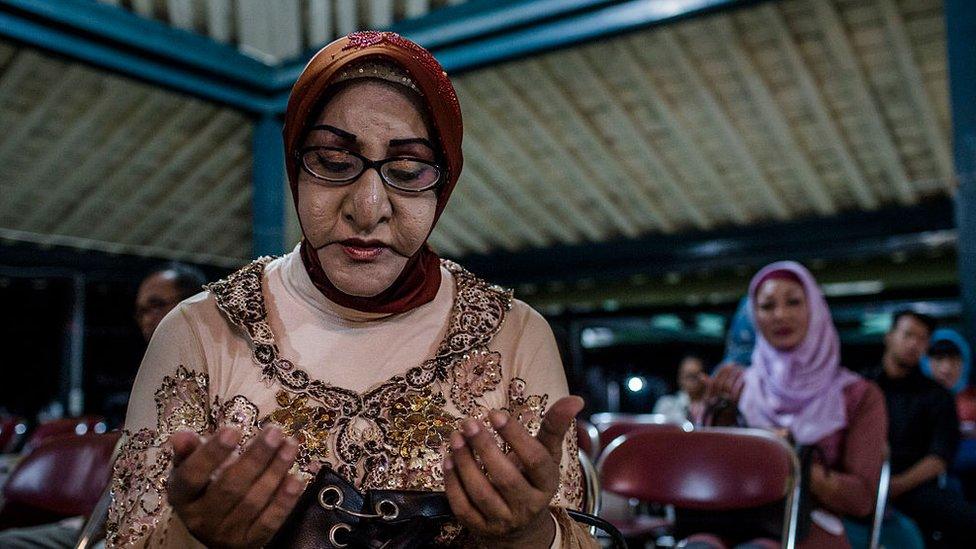
Shinta Ratri was a renowned transgender rights activist in Indonesia, leading the centre from 2014 until her death in February 2023
Ms Nur describes Ms Shinta as a guiding light, and the closest thing she had to family. Without her, the centre feels "empty and desolate".
Ms Shinta's death has put the community centre's future in doubt. The building is owned by the late leader's family - and they have asked Al Fatah to move out.
"We must be able to go on without Shinta and be independent," says Ms Nur.
YS Albuchory, the Islamic centre's secretary, explains they have received some support from community friends and human rights organizations, both locally and globally.
But acceptance of the trans community in Indonesia's religious establishment is limited.
The state has not been actively hostile and has allowed its existence, members say, but it does not provide any direct support.
Waryono Abdul Ghafur, director of Islamic centres at Indonesia's Ministry of Religion, says he is aware of the centre's plight.
But authorities cannot support the centre as it does not count as a legitimate Islamic centre under state regulations, he says.
In a larger context, the state "supports all positive activities", he says in a phone call with BBC News Indonesia. "People want to pray, why should they be refused?"
But the reality is that society "still rejects the social and religious status of transgender people", he continues. The Ministry of Religion has never been in direct contact with Al Fatah or facilitated any of its activities.
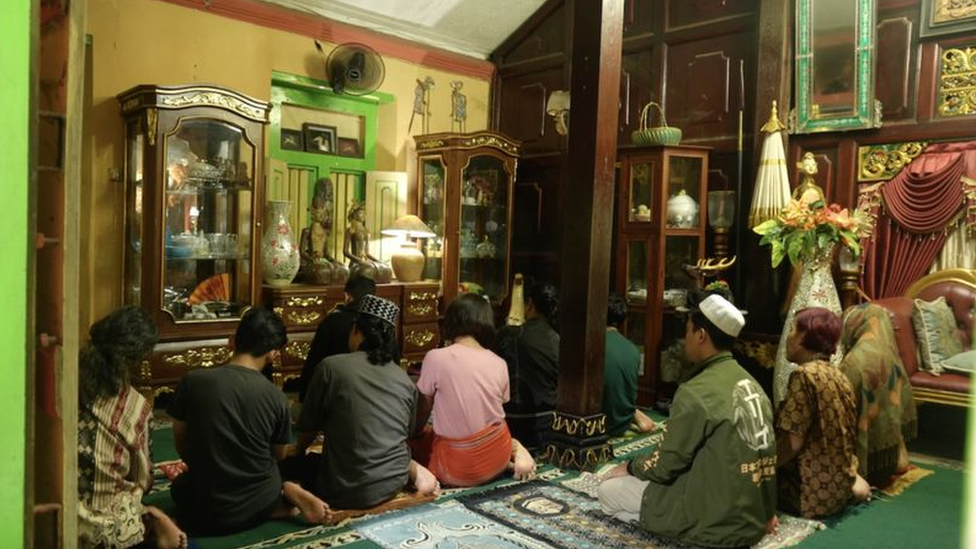
The members of Al-Fatah Islamic Centre participate in a joint prayer before breaking fast during Ramadan
Rully Mallay, another one of the centre's leaders, says Al Fatah is grateful for "whatever form of legality that is granted to us".
She is positive that one day, the transgender community will be more accepted in a country as diverse as Indonesia. That hope motivates her and her friends to keep the centre running.
"Islam should be able to provide space for anyone to be able to worship freely according to the ways of the religion," Ms Rully insists.
"I think the protection from the state is quite good. And we are optimistic that in the future the country will appreciate us as part of Bhineka Tunggal Ika [Unity in Diversity, the country's motto]."

The challenge now is to find a new venue - and the money to fund it. And it needs to be in a neighbourhood that will accept them.
The current neighbours in Yogyakarta have been welcoming.
One of them is Ms Rosidah, a member of the local community who is not a trans woman. She found out about the centre when some of its members asked her for directions. Now, she has been teaching there for over a year.
"I was busy, but because I was really curious, so I went to visit," she says Ms Rosidah.
Subsequently, Shinta Ratri asked if she would teach at the centre regularly as a volunteer. Ms Rosidah agreed after getting her family's blessing.
"I was a bit afraid of them, but after I came here. After teaching here, I saw that these people are so laid-back, especially Shinta. They were very patient, never angry, just smiling," she recalled.
Teguh Ridho is another volunteer who teaches Iqra at the centre, a basic level for reading the holy texts. He was amazed by the students' determination to travel from far and wide.
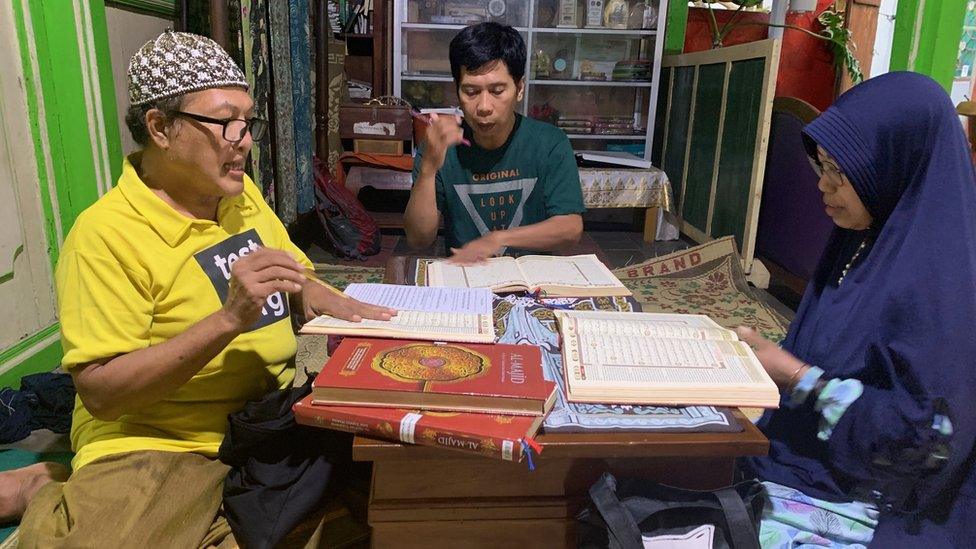
Ms Rosidah (right) teaches two transgender students how to read the Quran
"Even though we only have an hour to learn Quran, they came from far away."
It took a long time to win the hearts of the people in this neighbourhood.
Ms Albuchory recalls an incident in 2016, when an extremist Islamic group stormed their centre and threatened them.
"They said wherever you move to, we will chase you down unless you repent and go back to being men."
It was Shinta Ratri who fought for the centre to remain open with the assistance of a number of non-profit groups - until finally they received security guarantees from local police.
Ms Albuchory says the lives of the trans women attending the centre have become better since joining. They take on moral responsibilities informed by religious teachings, she says.
"After joining the school and getting to know God again, life becomes a little more organised. And the community becomes a second family," she says.
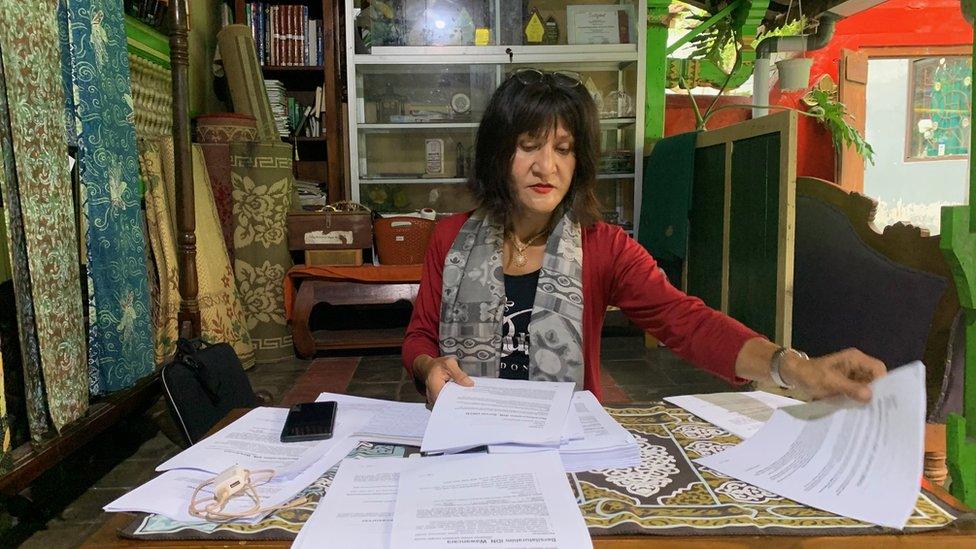
YS Albuchory, the Islamic centre's secretary, oversees all the programs conducted at the centre
That is why she hopes that the community centre will continue to provide religious classes and guidance for trans women like herself, who wish to bring themselves closer to God.
"I still need God. I cannot go on without praying. I'm sure other transgender friends have their own reasons."
Ms Albuchory believes she has a higher purpose: "As a creation of God, I don't just work and live as a trans woman."
Related topics
- Published22 April 2014
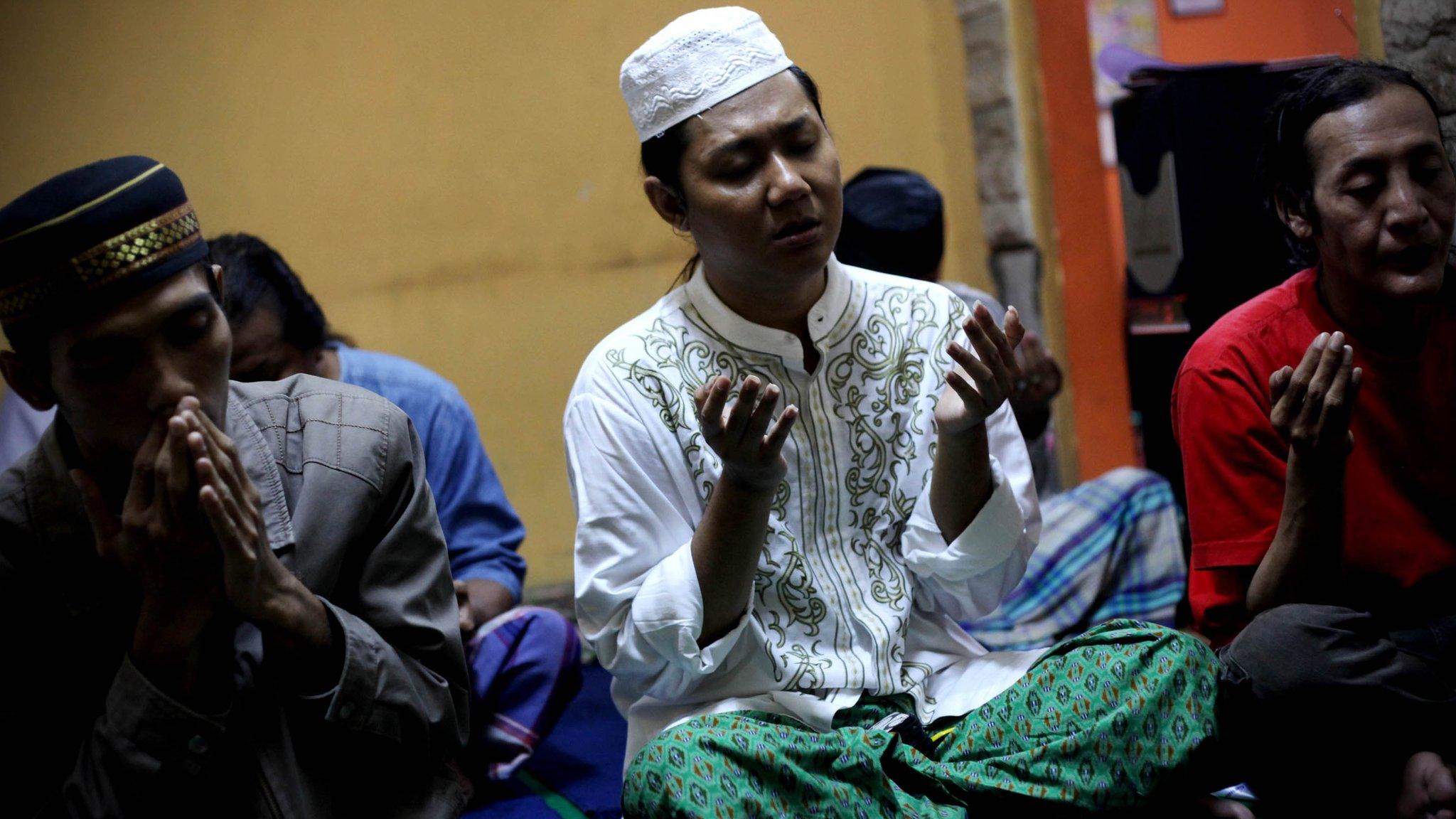
- Published6 December 2022
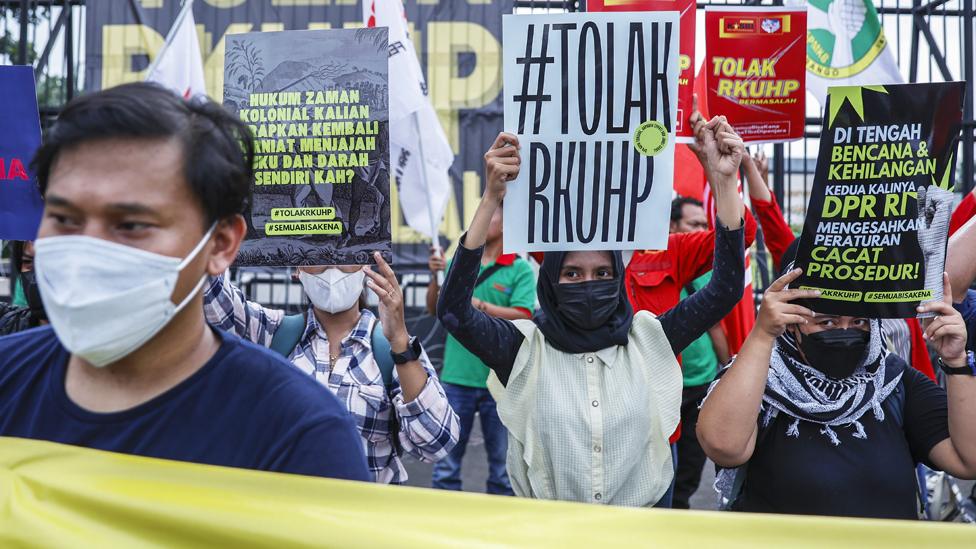
- Published29 February 2016
